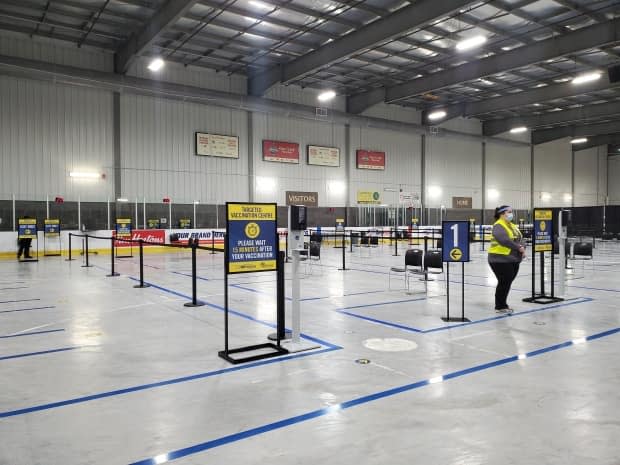8 weeks or 12? Choosing AstraZeneca dose timing comes down to COVID-19 risk: WECHU

As of Monday morning, Ontarians who received the Oxford-AstraZeneca vaccine are eligible to receive their second dose earlier than before — at eight weeks rather than 12.
But whether it makes sense to complete your COVID-19 vaccination earlier all depends on your situation, according to the top doctor for Windsor-Essex.
Research has shown that a 12-week interval between first and second doses provides the best level of protection against COVID-19, according to medical officer of health Dr. Wajid Ahmed.
However, the province recently approved eight weeks as the minimum interval, a recommendation that was made amid the spread of the Delta variant. For that particular strain, there's evidence that a single shot would provide less protection.
Ahmed said those with higher levels of risk for COVID-19 exposure should get their second dose of AstraZeneca sooner than later, but others should wait.
"If I am someone who, let's say, works for a restaurant or who is an essential worker, and there's risk of exposing myself to people potentially carrying the Delta variant, then I think I would prefer to get the second dose earlier, rather than waiting for the full 12 weeks," he said at the Windsor-Essex County Health Unit's (WECHU) briefing on YouTube Monday.
There are around 37,000 people in Windsor-Essex who received the AstraZeneca shot prior to the rollout being halted province-wide due to an association with a rare but potentially fatal blood-clot syndrome.
The province is allowing those who got those first shots to get their second dose or switch to a different vaccine. So far, most people locally who have gotten second vaccinations are sticking with AstraZeneca, according to Ahmed.
Appointments for second doses can be made through participating pharmacies, or those looking to receive an mRNA vaccine (the Pfizer or Moderna shot) can also book at a mass vaccination clinic through wevax.ca.
Theresa Marentette, CEO of WECHU, said this week will be a good one for the region's vaccine supply, with nearly 49,000 doses slated to arrive, including supplies of Moderna, Pfizer-BioNTech and AstraZeneca.
Overall, 343,182 COVID-19 vaccine doses have been given so far in Windsor-Essex and 265,233 people have had at least one dose. In total, 72.5 per cent of adults have had at least one dose and 22.4 per cent of adults are fully vaccinated.
Meanwhile, the recent trend of lowering COVID-19 case counts continued on Monday, with the public health unit reporting eight additional cases.
Of those, four are close contacts of confirmed cases, one case is community acquired, meaning there is no known source of transmission, one case is related to travel outside North America and two are under investigation.
The active case count stands at 109, and 14 COVID-19 patients are hospitalized, including three in intensive care.
There are three outbreaks taking place at workplaces:
One workplace in Windsor's health-care and social assistance sector.
Two manufacturing workplaces in Tecumseh.
Two community outbreaks are also ongoing:
Casa de Dios y Puerta del Cielo, a church in Windsor.
Southwest Detention Centre in Windsor.
COVID-19 in Chatham-Kent, Sarnia-Lambton
Lambton Public Health reported two new cases on Monday. Overall, there are 27 active cases of COVID-19 in the region and one active outbreak.
Chatham-Kent Public Health is reporting no new cases since the health unit's most recent update on Friday. The active case count has fallen to 11.

